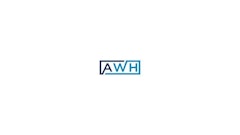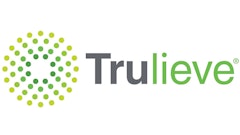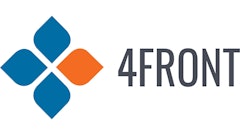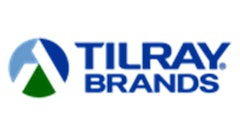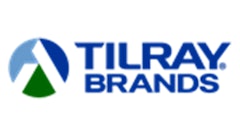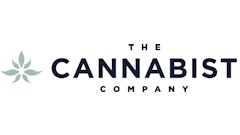
In 2014, Dan Nelson launched a website with a simple and familiar value proposition: Help cannabis users get the most bang for their buck by offering price-comparison shopping of dispensaries. His site, Wikileaf, aimed to do for cannabis consumers what Priceline.com did for travelers on a budget. For some media outlets, the resemblance between the two business models was too compelling not to point out.
“The ‘Priceline of Pot’ Will Help You Find the Cheapest Weed Around,” blazed the headline on Buzzfeed. The moniker was playful yet evocative—and ultimately stuck. (Incidentally, Leafbuyer Technologies Inc. also gets branded as the “Priceline of Pot” as by the media.)
But not everyone was happy that the phrase caught on. Priceline.com dashed off cease-and-desist letters to Wikileaf—and Wikileaf, according to Nelson, was forced to immediately scrub its Twitter feeds of any retweets of articles mentioning the cannabis startup as the Priceline of anything. In the end, that was just fine to Nelson. Though the association to Priceline was helpful in attracting media attention and consumer interest in his new website, the name also skewed the public’s perception of what Wikileaf actually was and could be in the future.
“When you’re new, people want to hear your elevator pitch—for you to sum up what you do as succinctly as possible. If you can get that into three words, they kind of understand,” Nelson told Cannabis Business Times in an interview. “But the name was very limiting in scope, and we’re happy to move on from that now.”
Nelson is now slated to ring the opening bell on Sept. 23 at the Canadian Securities Exchange. After completing a reverse takeover last year, his company will debut trading in what marks a coming-of-age for Nelson and the popular cannabis website.
Wikileaf’s First Pivot
Nelson originally got the idea for Wikileaf while blogging about the banking industry in the 2000s. Prior to the financial crisis of 2008, many banks had competed for customers over reverse-auction sites like MoneyAisle. Why couldn’t cannabis dispensaries do the same thing? was Nelson’s thinking. Nelson had envisioned Wikileaf as a reverse-auction website for the cannabis industry, similar to Priceline, but then shifted to a price-comparison model, where cannabis consumers could enter what strain of weed they wanted to buy and how far they were willing to travel to get it—one, three, five or ten miles, or “anywhere”—or even browse by brand or the dispensary itself. Wikileaf then scanned through its massive database of legal cannabis vendors and presented all the buying options, highlighting the best deal.
The business model was intriguing enough for Wikileaf to be acquired some two years after launch. In 2016, Nesta Holding Co. Ltd.—a private-equity firm based in Ottawa, Canada, headed by Chuck Rifici, who was also the co-founder of Tweed Marijuana, now known as Canopy Growth Corp.—acquired Nelson’s company for an undisclosed price.
Today, Seattle-based Wikileaf features more than 4,300 licensed dispensaries, deliveries and brands—numbers almost certain to explode if the U.S. government legalizes marijuana for recreational use. As of May 2019, Wikileaf’s site had generated pricing comparisons on more than 229,000 strains and product prices for consumers. With nearly 1 million organic users per month, Wikileaf is the third most trafficked cannabis website in the U.S., according to Rank2Traffic.
Though these numbers illustrate an impressive tech-company growth story, the business of providing real-time data to cannabis consumers and dispensaries has gotten ultra-competitive. Wikileaf competes in a crowded market against both Leafly and Weedmaps, which collectively draw nearly 20 million website visitors a month, according to marijuanaseo.com.
But as Wikileaf begins this new chapter as a public company, Nelson understands that in order to successfully compete for investors and customers, the company must fundamentally rethink business models through digital technology. One way to do that is by offering data as a service to dispensary clients.
Wikileaf’s Second Pivot
Sometimes, the data itself can become a product. As Wikileaf processed a growing amount of data from dispensary clients and consumer searches, Nelson and his executive team began to see the potential value of mastering this new currency. Of the 4,300 dispensaries featured on Wikileaf, roughly 1,600 have signed on to provide live, real-time inventory data back to the site. Using advanced analytics, Wikileaf can convert all this raw information into fine-grained behavioral insights, which are highly sought after by companies selling cannabis products to consumers.
“We’re able to see the velocity at which certain items move in and out of inventory. We’re able to see which things are selling well. Which products are trending in certain areas. And which strains,” Nelson says. “Once we get a better grasp of this, and we clean up the data a little bit more, there’s going to be a lot of consumer insight that we’re going to be able to show to both the end consumer and the dispensaries themselves to help them make business-intelligence types of decisions. This essentially becomes another revenue stream.”
Thus, the company that initially saw itself as a Priceline now sees a future as an integrated information technology company serving two ends of the market.
This could not have been possible without first engendering trust in the market. In 2017, Wikileaf began purging its platform of unlicensed dispensaries, a move motivated by two driving forces: feedback from legitimate dispensaries and an eye toward a listing on the Canadian Securities Exchange. In early 2018, when California launched its legal adult-use cannabis market, Wikileaf purged its online directory of all illegal dispensaries, cutting its list of 1,500 California shops back to 577.
With legitimacy assured, Nelson and his team are focusing in the short term on connecting consumers with brands over the Wikileaf platform.
“In old days, you’d leave it up to the budtender. Today, people are seeking out specific brands,” Nelson says.
Of course, this requires the consumer to have faith in the robustness and accuracy of the data as well as trust in the platform to facilitate that connection to a favored brand. So Wikileaf was really always more like a Wikipedia than a Priceline.
“I wanted the whole site rooted in trust and knowledge—real data you can trust,” Nelson says. “We thought Wiki was the best way to illuminate that.”














